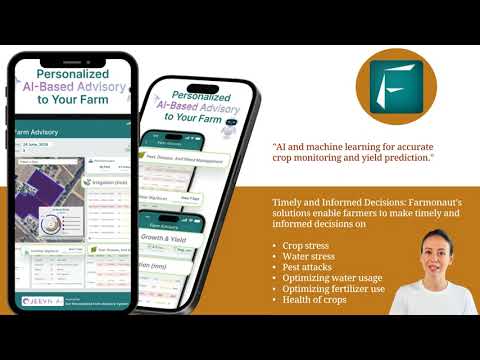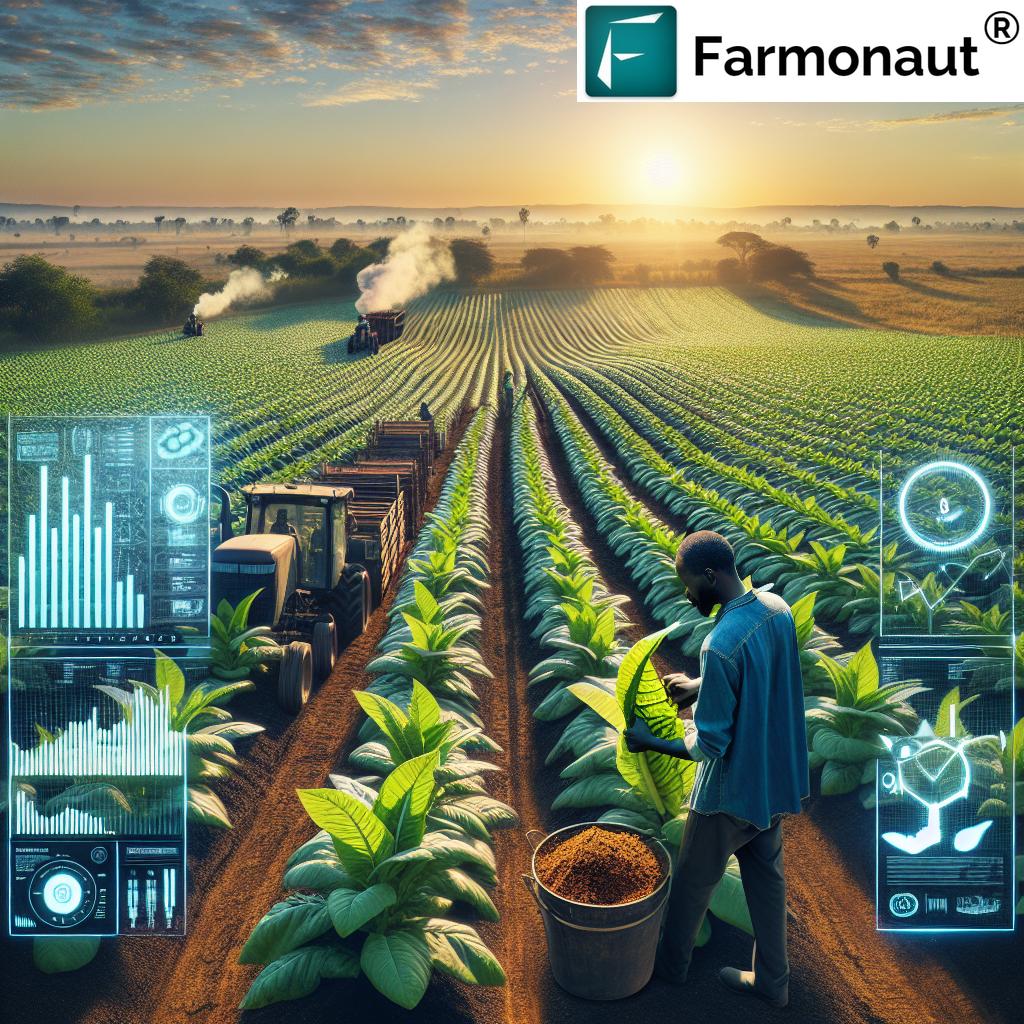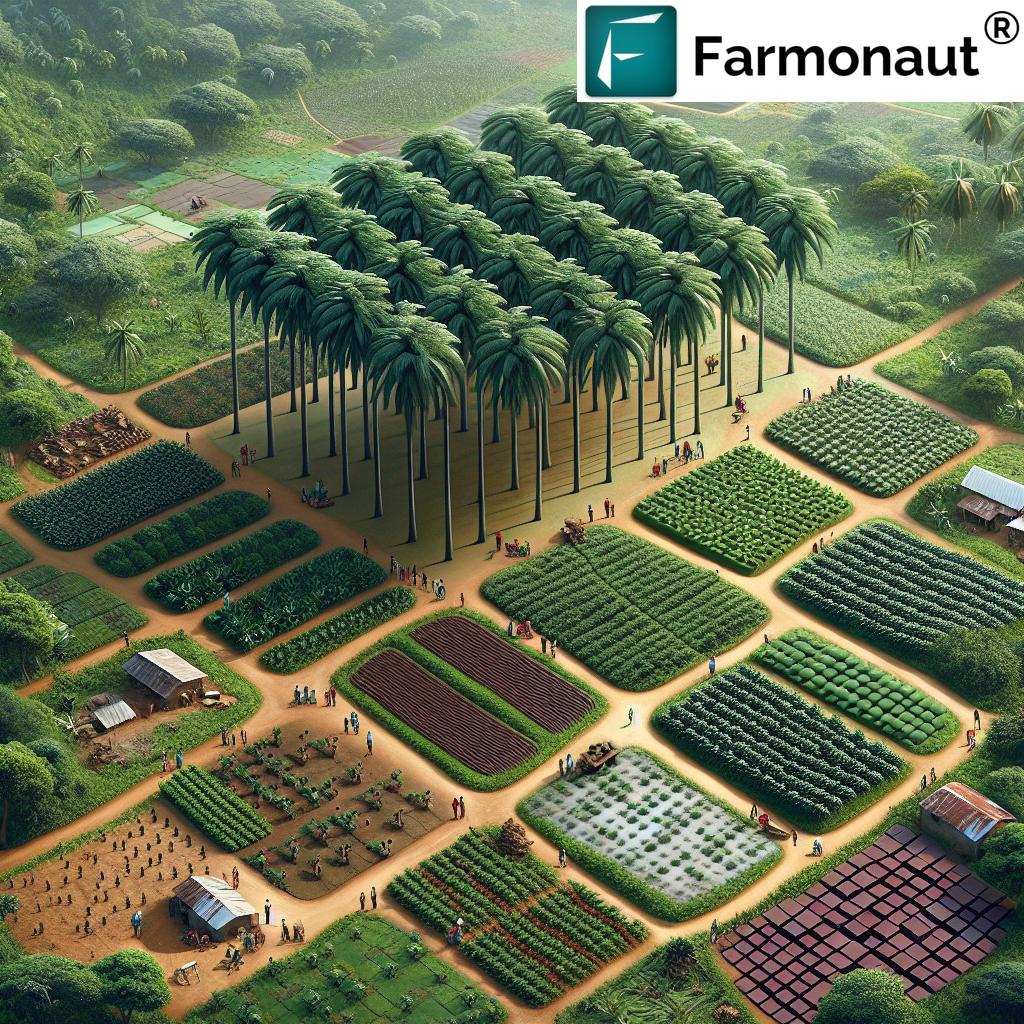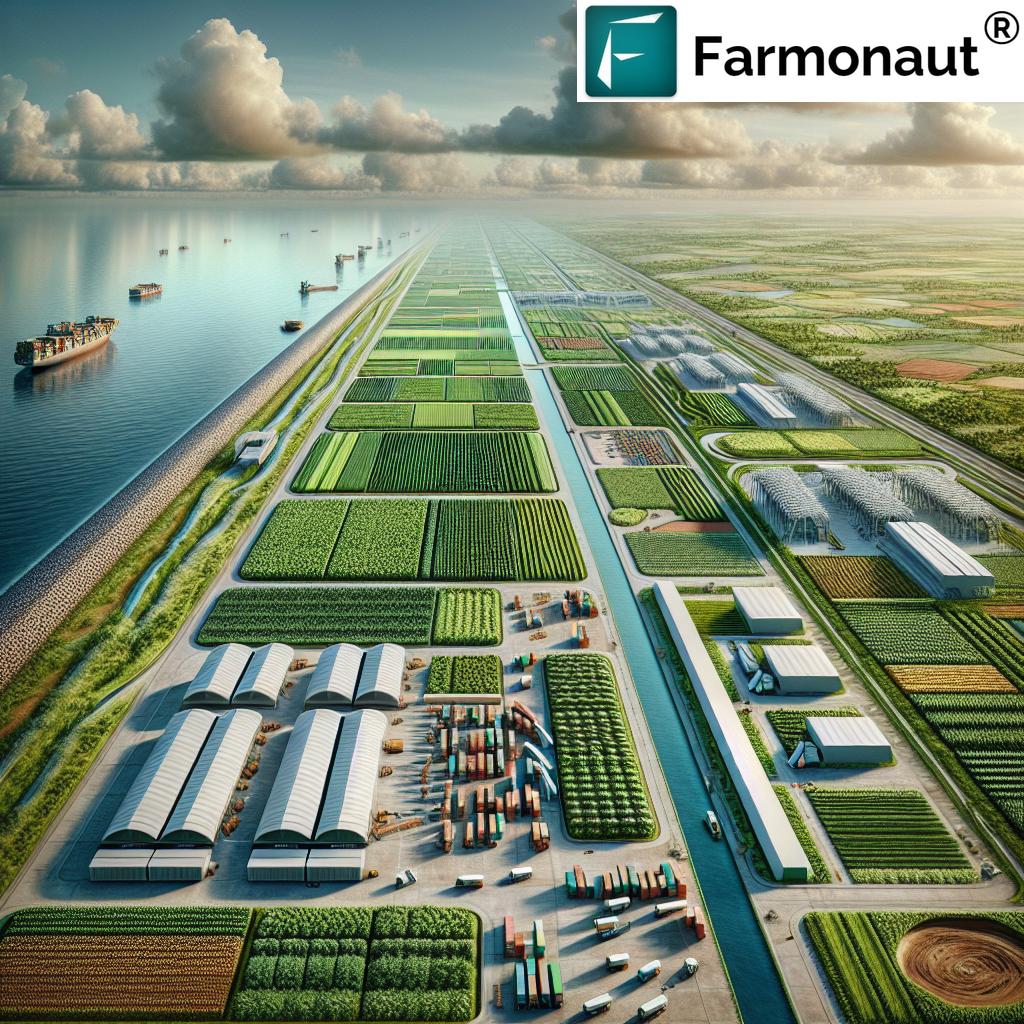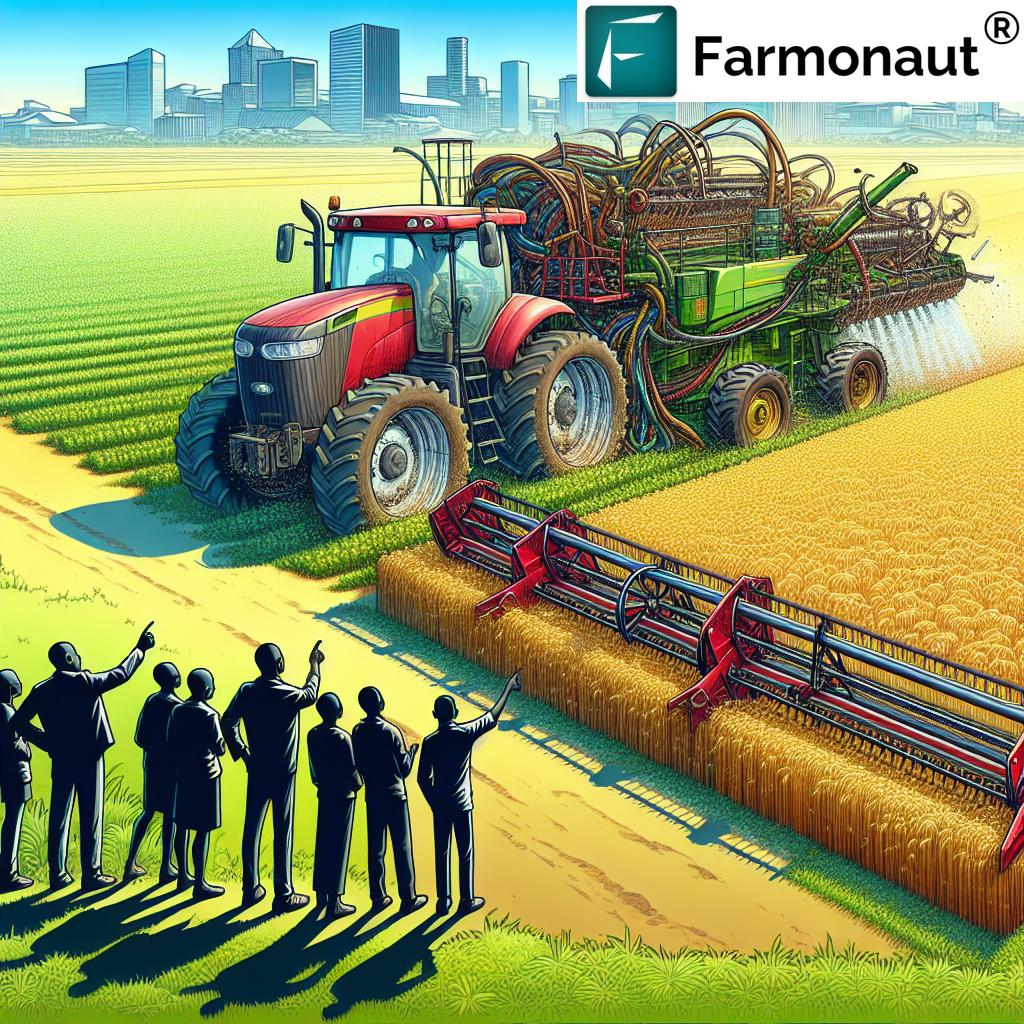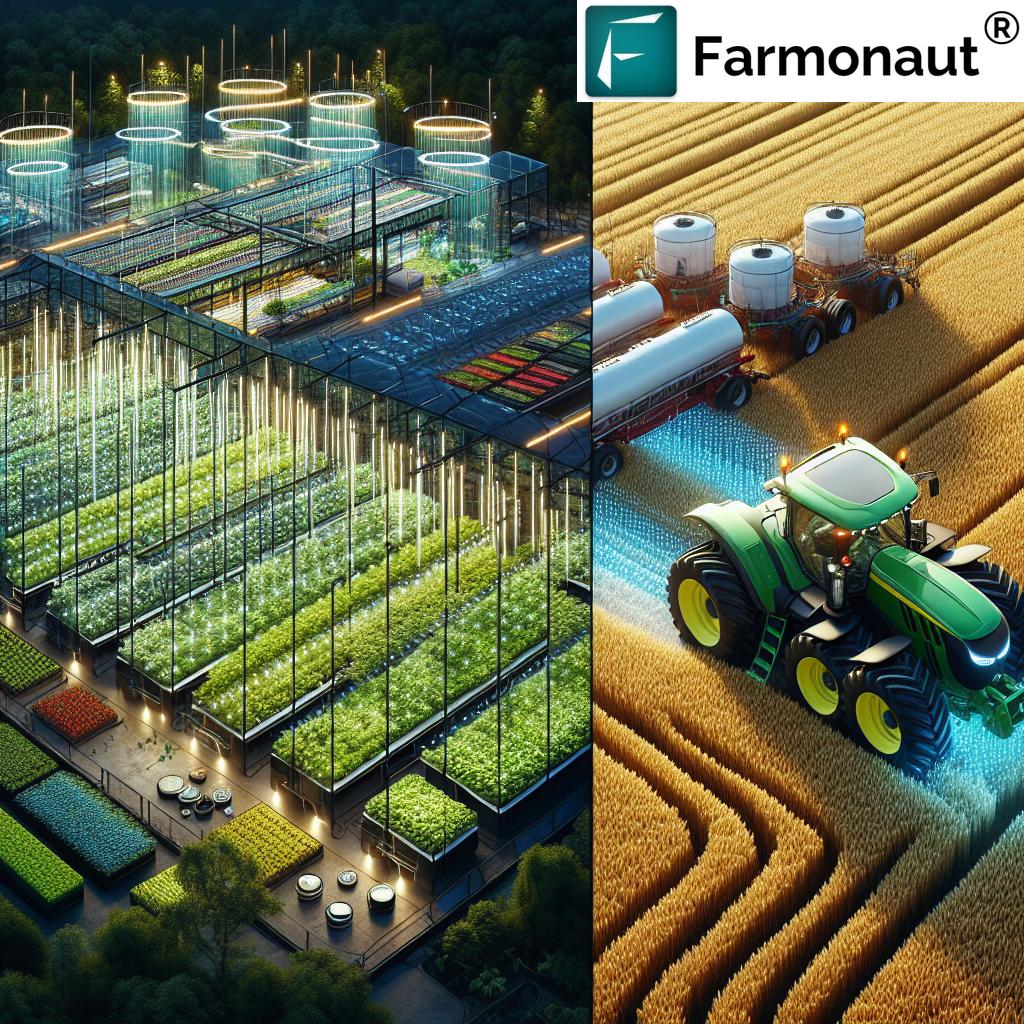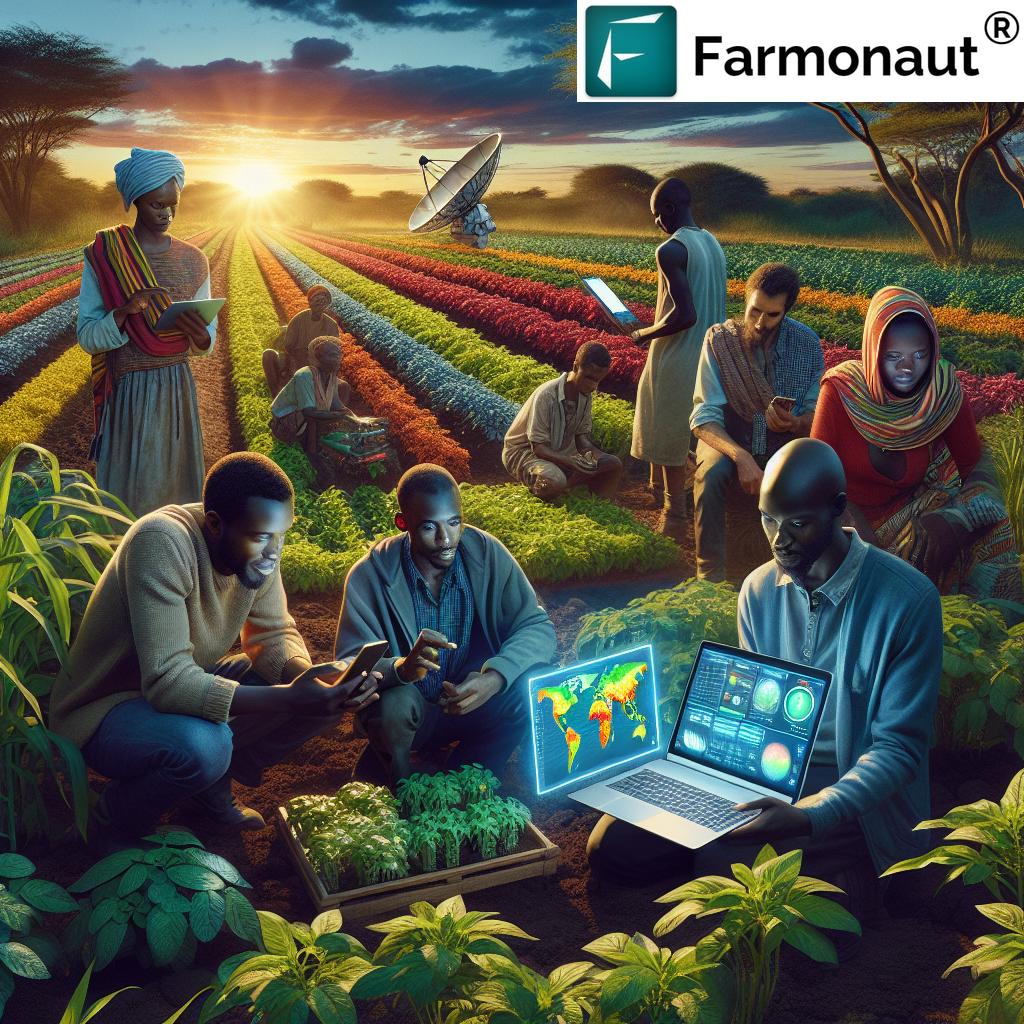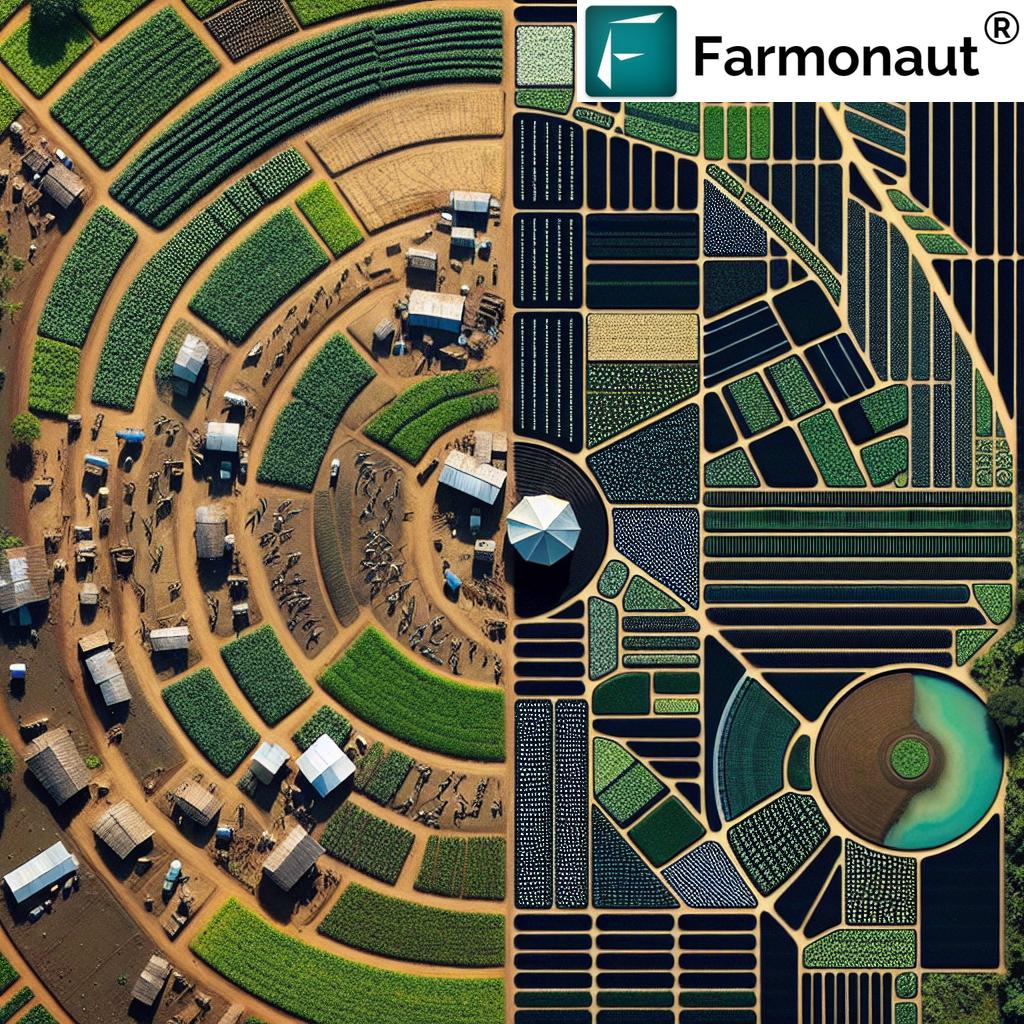Revolutionizing Kenyan Agriculture: Smart Farming Technology Empowers Smallholders in Machakos
“Kenyan students have developed smart soil nutrient sensors that help farmers determine optimal crops for their land.”
In the heart of Kenya, approximately 65 kilometers southeast of Nairobi, a quiet revolution is taking place. Machakos, a city known for its rich agricultural heritage, is now at the forefront of a technological transformation that promises to reshape the future of farming in Africa. We’re witnessing the dawn of a new era in Kenyan agriculture, where smart farming technology is empowering smallholder farmers and paving the way for sustainable, efficient, and productive agricultural practices.
At the center of this agricultural renaissance is the Luban Workshop at Machakos University, a hub of innovation and learning that’s producing the next generation of agricultural technologists. Here, students are developing cutting-edge solutions that address critical challenges in African agriculture, from soil nutrient sensors to smart irrigation systems. These advancements are not just academic exercises; they’re practical tools designed to revolutionize how smallholder farmers in Kenya and beyond approach their daily work.

The Luban Workshop: A Catalyst for Agricultural Innovation
The Luban Workshop, established in 2019 as part of China’s Belt and Road Initiative and the Forum on China-Africa Cooperation, has become a beacon of hope for aspiring engineers and agriculturalists. This state-of-the-art facility has already benefited around 600 students, providing them with hands-on experience in advanced technologies such as cloud computing, AI, and precision agriculture techniques.
One of the workshop’s standout projects is led by Dickson Esamai, a fifth-year electrical and electronics engineering student. Esamai and his team are developing a handheld device that’s set to revolutionize how smallholder farmers select crops and manage their land. This innovative tool uses soil nutrient sensors to analyze the composition of the soil, helping farmers make informed decisions about which crops are best suited for their particular plot of land.
Features of Esamai’s Smart Farming Device:
- Soil nutrient analysis for optimal crop selection
- Moisture sensors for precise irrigation management
- Text messaging capability for feature phones, ensuring accessibility for all farmers
- Data storage for long-term agricultural planning
The impact of such a device cannot be overstated. In a country where agriculture is the backbone of the economy, providing livelihoods for over 40% of the total population and 70% of the rural population, tools like these can significantly improve agricultural output and farmer incomes.
Bridging the Digital Divide in Agriculture
One of the most impressive aspects of the innovations coming out of the Luban Workshop is their focus on accessibility. Recognizing that many smallholder farmers in Kenya may not have access to smartphones, Esamai’s team has incorporated a text messaging feature into their device. This ensures that even farmers with basic feature phones can receive critical agricultural information, bridging the digital divide that often exists in rural areas.
This approach aligns perfectly with the growing trend of mobile apps for farmers in Kenya. These apps are designed to improve access to agricultural information, market prices, and weather forecasts, all of which are crucial for making informed farming decisions. By making this information available through various channels, including SMS, these innovations are ensuring that no farmer is left behind in the digital agricultural revolution.
For those looking to leverage advanced agricultural technology, Farmonaut offers a comprehensive suite of tools accessible through their web application, as well as mobile apps for Android and iOS devices.



The Rise of AI in Kenyan Agriculture
Artificial Intelligence (AI) is playing an increasingly important role in the agricultural innovations emerging from Kenya. At the Luban Workshop, students are integrating AI into various projects, from crop management systems to wildlife conservation tools. This integration of AI in agriculture is fostering new solutions that have the potential to address some of the most pressing challenges facing African farmers.
For example, Mark Omaiko, a cloud computing student at the workshop, is developing an AI-integrated mobile application designed to help tourists navigate Kenya’s wildlife sites. While not directly related to agriculture, this project demonstrates the versatility of AI and its potential applications in rural development and conservation efforts, which are closely tied to agricultural practices in many parts of Kenya.
“Vocational training programs in Kenya are equipping students with digital skills for the evolving agricultural job market.”
Vocational Training: Preparing the Next Generation of Agri-technologists
The success of the Luban Workshop highlights the importance of vocational training programs in equipping students with the digital skills necessary for the evolving agricultural job market. The partnership between Machakos University and China’s Tianjin City Vocational College is a prime example of how international cooperation can enhance educational opportunities and drive innovation in the agricultural sector.
These vocational training programs are not just about teaching technical skills; they’re about fostering a mindset of innovation and problem-solving. Students are encouraged to think creatively about how technology can address real-world challenges in agriculture, from improving crop yields to conserving water resources.
Key Focus Areas of Vocational Training in Agricultural Technology:
- Precision agriculture techniques
- AI and machine learning applications in farming
- IoT (Internet of Things) for agricultural monitoring
- Data analysis for crop management
- Sustainable farming practices
By providing students with hands-on experience in these cutting-edge technologies, vocational training programs are creating a workforce that’s ready to meet the challenges of modern agriculture. This is crucial for the future of farming in Kenya and across Africa, where the adoption of smart farming technologies can significantly impact food security and economic development.
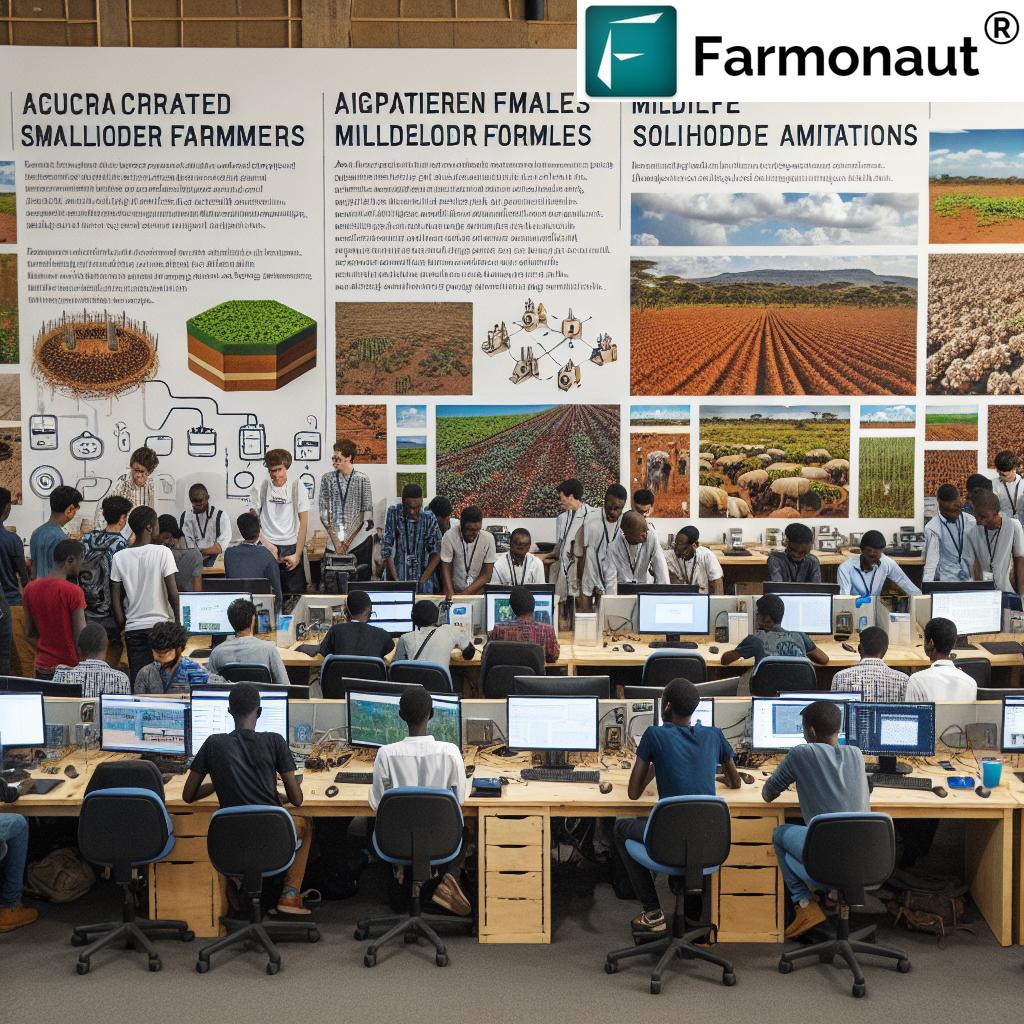
The Impact of Smart Farming Technologies on Smallholder Farmers
To truly understand the transformative potential of smart farming technologies in Machakos and beyond, it’s essential to look at the tangible benefits they offer to smallholder farmers. The following table provides a comparison between traditional farming methods and smart farming technologies, highlighting the estimated impacts on various aspects of agriculture:
| Agricultural Aspect | Traditional Method | Smart Farming Technology | Estimated Impact on Yield (%) | Estimated Water Conservation (%) | Estimated Cost Savings (%) |
|---|---|---|---|---|---|
| Soil Analysis | Manual testing, infrequent | Soil nutrient sensors, real-time data | +15-20% | N/A | 10-15% |
| Irrigation | Manual, schedule-based | Smart irrigation systems, moisture sensors | +10-15% | 30-40% | 20-25% |
| Crop Selection | Based on tradition or guesswork | Data-driven, soil-specific recommendations | +20-25% | 10-15% | 15-20% |
| Pest Control | Reactive, blanket application | Predictive analysis, targeted treatment | +15-20% | N/A | 25-30% |
| Market Information Access | Limited, often outdated | Real-time market data via mobile apps | N/A | N/A | 10-15% |
As we can see from this table, the adoption of smart farming technologies has the potential to significantly improve yields, conserve water, and reduce costs for smallholder farmers in Machakos and across Kenya. These improvements can lead to increased food security, better livelihoods for farmers, and more sustainable agricultural practices.
Challenges and Opportunities in Implementing Smart Farming Technologies
While the potential benefits of smart farming technologies are clear, their implementation in Machakos and other parts of Kenya is not without challenges. Some of the key obstacles include:
- Limited access to technology in rural areas
- Initial costs of adopting new technologies
- Need for training and education on using smart farming tools
- Infrastructure limitations, such as unreliable internet connectivity
- Cultural resistance to changing traditional farming methods
However, these challenges also present opportunities for innovation and growth. The work being done at the Luban Workshop and other similar initiatives across Kenya is addressing many of these issues head-on. By focusing on developing accessible, affordable, and user-friendly technologies, these projects are making smart farming a realistic option for smallholder farmers.
The Role of Satellite Technology in Smart Farming
One of the most promising developments in smart farming is the use of satellite technology for precision agriculture. Companies like Farmonaut are at the forefront of this revolution, offering advanced, satellite-based farm management solutions that are accessible to farmers of all sizes.
Farmonaut’s platform leverages satellite imagery and AI to provide valuable services such as real-time crop health monitoring, soil moisture analysis, and resource management tools. For developers interested in integrating these capabilities into their own applications, Farmonaut offers an API with comprehensive documentation.
Benefits of Satellite-Based Farm Management:
- Large-scale monitoring of crop health
- Early detection of pest infestations and diseases
- Optimization of irrigation and fertilizer use
- Accurate yield predictions
- Historical data analysis for improved decision-making
By combining satellite technology with on-the-ground smart farming devices like those being developed in Machakos, farmers can gain a comprehensive view of their land and make data-driven decisions that optimize their operations.
The Future of Agriculture in Kenya
As we look to the future, it’s clear that the agricultural landscape in Kenya is on the cusp of a major transformation. The innovations emerging from places like the Luban Workshop in Machakos are just the beginning. As these technologies are refined and adopted more widely, we can expect to see significant improvements in agricultural productivity, sustainability, and profitability.
Some key trends to watch in the coming years include:
- Increased integration of AI and machine learning in farm management
- Expansion of IoT networks for real-time agricultural monitoring
- Development of more resilient and climate-adaptive farming practices
- Greater emphasis on sustainable and organic farming techniques
- Improved access to financial services for smallholder farmers through agritech solutions
As these trends take hold, we can expect to see a new generation of tech-savvy farmers emerging in Kenya, equipped with the tools and knowledge to face the challenges of 21st-century agriculture.
Conclusion: A Bright Future for Kenyan Agriculture
The agricultural revolution taking place in Machakos is a microcosm of the broader changes happening across Kenya and Africa. By embracing smart farming technologies, vocational training, and innovative approaches to agricultural challenges, Kenya is positioning itself as a leader in agricultural innovation on the continent.
The impact of these developments extends far beyond increased crop yields or water conservation. They represent a fundamental shift in how we approach farming, one that empowers smallholder farmers, promotes sustainable practices, and ensures food security for future generations.
As we continue to support and invest in agricultural technology and education, we’re not just cultivating crops; we’re cultivating a brighter, more sustainable future for Kenya and beyond. The seeds of innovation planted in workshops like the one in Machakos are set to bear fruit for years to come, revolutionizing Kenyan agriculture and empowering smallholders across the nation.
FAQ Section
Q: What is smart farming technology?
A: Smart farming technology refers to the use of modern digital tools and techniques in agriculture. This includes devices like soil nutrient sensors, smart irrigation systems, and mobile apps that provide real-time data to farmers. These technologies help optimize crop yields, conserve resources, and improve overall farm management.
Q: How is the Luban Workshop in Machakos contributing to agricultural innovation?
A: The Luban Workshop at Machakos University is a hub for developing innovative agricultural technologies. Students there are creating tools like handheld soil analysis devices and AI-integrated applications that address specific challenges faced by Kenyan farmers. The workshop provides hands-on training in advanced technologies, preparing students for the evolving agricultural job market.
Q: What benefits do smart farming technologies offer to smallholder farmers?
A: Smart farming technologies offer numerous benefits to smallholder farmers, including:
- Improved crop yields through optimized planting and management
- Reduced water usage with precision irrigation systems
- Lower costs due to efficient use of inputs like fertilizers and pesticides
- Better decision-making based on real-time data and analytics
- Increased access to market information and financial services
Q: How is satellite technology being used in smart farming?
A: Satellite technology is being used for large-scale crop monitoring, providing farmers with valuable data on crop health, soil moisture levels, and potential pest or disease outbreaks. Companies like Farmonaut offer satellite-based farm management solutions that allow farmers to track their fields’ performance over time and make data-driven decisions.
Q: What challenges exist in implementing smart farming technologies in Kenya?
A: Some challenges include limited access to technology in rural areas, initial costs of adoption, need for training on new technologies, infrastructure limitations like unreliable internet, and cultural resistance to changing traditional farming methods. However, initiatives like the Luban Workshop are working to address these challenges by developing accessible and affordable solutions.
Q: How can I access Farmonaut’s smart farming tools?
A: Farmonaut’s tools are accessible through their web application, as well as mobile apps for Android and iOS devices. They also offer an API for developers who want to integrate Farmonaut’s satellite and weather data into their own applications. You can find links to these resources earlier in this article.




